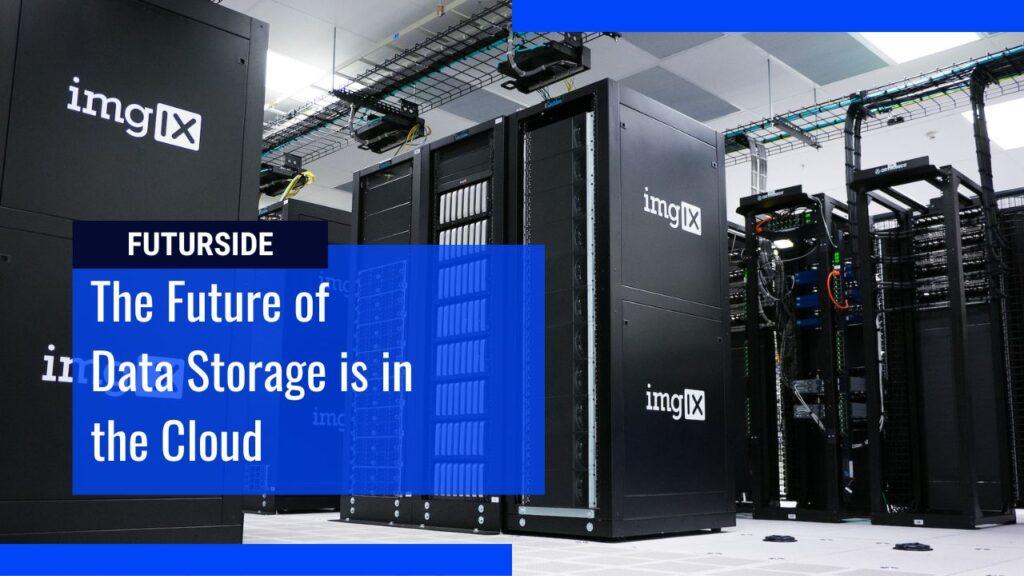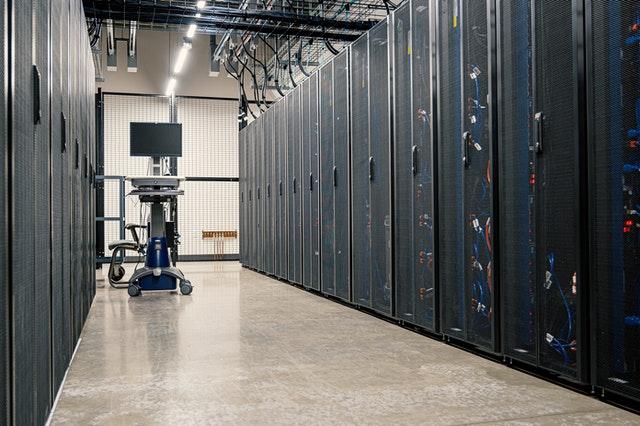Imagine you’re a small business owner or online service provider or creator that generates and gathers a lot of information. So you will need to have servers, operating systems, software and other configuration to store and process the data. However, there are a lot of inconveniences of having an on-premise data center.
The problem is that if anything goes wrong with the server such as a hardware failure, software problem or operating system crash then you would be responsible for fixing the problem. Not to mention that there are maintenance and security firewalls that are needed to keep the server up and running. And maintaining all that is costly.
Technological advancement and digitalization have led to an increase in computing resources and demand for network storage. Also, the increasing number of devices creates an epitome of data that needs to be processed. So if you’re a business owner, instead of building and maintaining your own servers and software along with the extremely high cost of internet bandwidth, you can turn to the cloud.
Having another company hosting all of your computing resources on their servers at a competitive price can remove all this trouble. Cloud computing can handle everything for you. Cloud service provider eliminates all the hassle and upkeeps services. So what exactly is cloud computing?

Contents
What is cloud computing?
Cloud computing is the process of backing up and storing data on remote servers. It is a networked collection of computer hardware that provides online services and on-demand computing. On-demand services allow users to access applications, data, and development tools on remote servers. Cloud storage gives users access to their information from anywhere.
Cloud computing hardware isn’t physically touchable but rather controlled remotely through a web interface. To make this service work, the software creates virtual machines that subdivide computing power into smaller units, each running its own operating system. The virtualization process allows these resources to be shared efficiently across the cloud.
If a power failure strikes, you may lose your work. Instead, with the on-demand storage, the data will be saved on a server so you can restore it whenever the power comes back. It is a great choice for businesses that need to scale rapidly. This makes it easy to collaborate with others people and has made it possible to use applications that were previously only available in local computer systems.
Those who used cloud services can easily store personal data and perform tasks. You can even use them for business meetings as well. Video conferencing services use the cloud to record meetings and make them available anywhere. And of course, if you’re an IT pro, on-demand services can help you work more efficiently and keep your data safe and accessible.
Why cloud computing is important?
Cloud computing is an emerging technology that enables businesses to access essential programs and data over the Internet. It eliminates the need to purchase servers and software while reducing costs and space. On-demand computing costs little or no money and is paid as you go.
Because it’s on-demand which basically means data is stored remotely, businesses can scale up and down without worrying about hardware and software upgrades. And because it’s based on the Internet, this utility computing offers businesses the flexibility to upgrade as their needs change.

By storing data in the cloud, organizations can avoid the space constraints of a local server, freeing up precious hard drive space for other things. This also makes it possible to back up data for purposes such as restoring data if a local server fails. And because cloud storage is not limited by physical space, information stored on these servers can be backed up in many different locations.
This ensures that no matter what happens to a local server, the data will always be accessible. In a disaster situation, cloud technology can even enable remote access to workloads and files. And it also allows for instant expansion and superior horizontal scaling. The pay-as-you-grow model allows companies to scale according to current demand.
Security is a big concern for every business. A breach of data can severely damage a company’s brand positioning, revenue and customer loyalty. Fortunately, cloud computing solutions offer advanced security measures, including granular permissions and federated roles, which help restrict access to sensitive data.
Furthermore, they significantly reduce the attack surface for malicious actors. In addition to data security, on-demand services make it easier to keep data and applications up-to-date. With more businesses adopting remote working models, information access becomes more crucial. Cloud-based providers offer high-quality data recovery and flexible usage of IT resources.
Data security, backup, and disaster recovery are all growing concerns for businesses. However, many companies do not have the time or resources to safeguard data from all angles. Providers offer end-to-end security that few businesses can match. In this way, the on-demand processing increases employee satisfaction and employee productivity.
Collaboration is an essential aspect in today’s world. On-demand computing allows employees to collaborate. Teams can view information shared with others, securely and easily. Some providers even offer collaboration smart spaces that help employees become more involved in the work they do.
Businesses have numerous reasons to consider the use of cloud computing. The technology is becoming increasingly convenient, allowing businesses to monitor employees’ activities and communicate more effectively with their customers. Managers can also access information about employee performance in real-time. This is especially useful for companies that have distributed teams.
For example, energy company field engineers often travel and need access to real-time grid data. Supply chain operation managers need a centralized view of their supply chain. On-demand processing services make these operational and physical barriers go away, enabling companies to run more smoothly and efficiently. That’s why on-demand computing is a great option for businesses with multiple employees.
Businesses also reap the benefits of cloud computing by reducing capital costs. On-demand services allow scalability as needed and offer advanced cybersecurity features with cost-effective solutions. By eliminating the need for physical infrastructure, this utility computing can greatly reduce capital expenses. And since businesses can scale as necessary, it is a cost-effective way to use company resources.
Benefits of cloud computing
While it might not be immediately apparent, one of the biggest benefits of cloud computing is the fact that it’s cheaper than on-premise data centers. The costs associated with on-premise hardware and software upgrades can add up to millions of dollars per year, not to mention the need for security, maintenance and expansion when more resources are needed.
A managed service provider will take care of the cost of maintaining these systems, so you don’t have to worry about that. In addition, you don’t have to worry about hiring an expensive tech support team or maintaining expensive equipment. The advantages of cloud computing are numerous. For starters, it allows employees to access corporate data on the go.
This service makes it easy for remote workers to stay in touch with the office. Cloud-based CRM software can also provide a more flexible work-life balance for remote employees. The high satisfaction rate of employees makes it easier for organizations to expand their server usage. With full visibility, everyone involved can collaborate more effectively and be more productive.
Businesses can maintain a strategic competitive advantage with cloud-based services. Without on-demand services, they will fall behind their competitors. With less time and money spent on server upgrades, cloud-based services are cost-efficient and provide built-in scalability. Smaller businesses can benefit from increased freedom and agility and this gives them a boost over large companies.
On-demand processing services are available in public and private models. Private cloud services require a one-time fee from the business, while public cloud services are offered to the general public for a low monthly fee. Some companies even offer a hybrid model to suit specific needs.
Off-house data storage eliminates capacity constraints and makes it possible to store information for backup and restore purposes. As end-user data changes over time, it’s important to be able to keep track of these changes and ensure compliance. Cloud-based data storage also allows for the storage of older software versions for rollback and recovery.
Data security is a top concern of every business, as a data breach can negatively impact a company’s revenue, brand positioning and customer loyalty. On-demand services offer advanced security measures to keep sensitive information safe. Users can also customize the security settings for each service. Furthermore, some cloud services offer disaster recovery in four hours or less.
How does cloud computing improve efficiency?
Over 6.6 billion people own smartphones today which means employees can access business data on their personal devices. And with cloud applications, in-house IT resources are relieved of the day-to-day maintenance of their own systems. They can focus on strategic initiatives instead while other tasks are outsourced to a Managed Service Provider (MSP).
Cloud processing also provides companies with the flexibility to adjust to internal and external demands. By changing demand for the cloud, companies can increase or decrease the amount of data they store. This helps them avoid overprovisioning. This flexibility allows them to stay afloat during economic downturns.
Losing important data can destroy a business. Data backup service providers have long preached the importance of data backup, but with on-demand services, it becomes easy and affordable. And the ease with which employees can access corporate data, no matter where they are is also a boost.
These servers have 24-hour monitoring systems and experts are on-site to troubleshoot any problems. In the event of hardware or software failure, the server can simply be moved to another server rack, so users can continue to access their files and put their changes back into the cloud.
Utility computing gives businesses the flexibility to adapt to changing market conditions, which in-house physical solutions are simply not able to do. You can get more done in less time with virtual access to work and data. You can easily share and update documents, which are both time-saving benefits.
Cloud services also help create a business environment that promotes innovation. It helps companies put in place the operational and technical elements that they need to succeed. Then, they can focus on building their applications, rather than worrying about managing servers. Moreover, cloud services help companies create a consistent innovation effort.
On-demand computing also frees up resources that your firm can use for other tasks. When resources are freed up, a business can focus on satisfying customers and clients. In addition to freeing up resources, cloud-based services are renowned for their flexibility. You can just request extra bandwidth and server processing power for your company’s needs and a cloud service provider will provide it.
The utility processing services allow you to pay only for what you use. This can save your company money and time when starting new projects. In addition to saving time and money, you can scale the services you use whenever needed. You can also expand them based on your needs, instead of paying for a large amount of up-front infrastructure.
Hence, cloud computing infrastructure is the backbone and delivery pipeline of just about every digital service. In the age of hyper-connectivity, on-demand computing is here to stay. You can easily use these services on your mobile device, on your computer or even on your smartwatch.

0 Comments